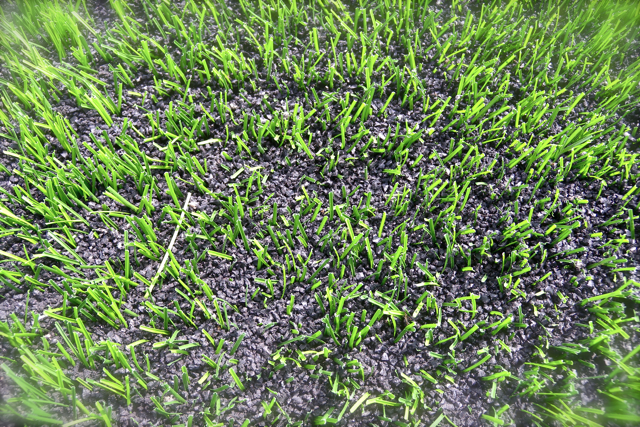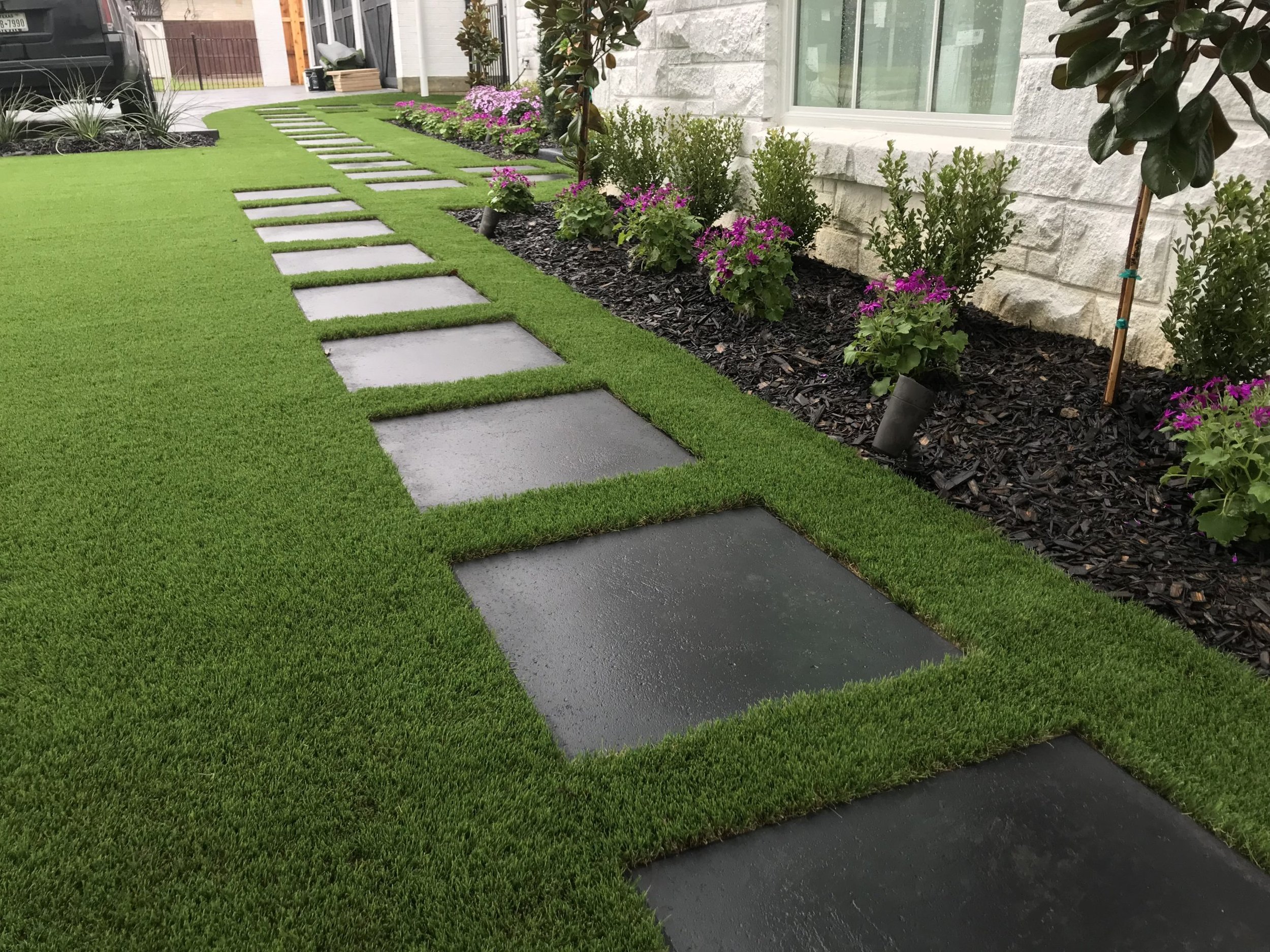Choose Reliable Artificial Turf Companies Phoenix for High-Quality and Natural-Looking Grass
Choose Reliable Artificial Turf Companies Phoenix for High-Quality and Natural-Looking Grass
Blog Article
Explore the Environmental Conveniences of Opting for Artificial Grass Solutions
The adoption of fabricated grass services offers an engaging chance to deal with pressing ecological challenges. By dramatically lowering water usage and minimizing the application of harmful chemicals, these options not just promote lasting landscaping however likewise secure local communities.
Water Preservation Perks
Among one of the most substantial benefits of synthetic grass is its ability to save water. Conventional lawn yards call for significant watering, especially in areas prone to dry spell or water constraints. In comparison, artificial turf does not require watering, dramatically reducing the general need for water resources. This attribute is especially advantageous in dry areas where water shortage is a pushing problem.
By removing the requirement for regular watering, synthetic grass contributes to lasting landscape techniques and assists minimize the environmental influence of extreme water usage. The conservation of water extends to the decrease of runoff, which can lead to dirt erosion and river pollution.
Additionally, the installation of synthetic grass allows house owners and communities to allot water sources extra effectively, concentrating on vital usages such as drinking water and agriculture. The change in the direction of man-made lawn not just advertises accountable water usage but likewise aligns with more comprehensive environmental objectives focused on maintaining all-natural sources.
As communities progressively prioritize sustainability, the water preservation benefits of synthetic grass offer a compelling instance for its fostering in domestic and business landscape design jobs.
Minimized Chemical Usage
The change to artificial lawn significantly decreases the reliance on chemical treatments typically made use of in natural turf upkeep. Typical turf monitoring usually includes the application of herbicides, chemicals, and plant foods to promote growth and control pests. These chemicals can pose threats to human health, regional wild animals, and the environment, adding to soil and water contamination.
In contrast, fabricated grass eliminates the requirement for these damaging substances. By minimizing the launch of artificial substances into the environment, man-made turf advertises much healthier dirt and water systems.
Additionally, the lack of chemical drainage connected with man-made grass installations assists shield neighborhood waterways from air pollution, sustaining aquatic life and keeping biodiversity. Arizona turf. As communities significantly prioritize lasting practices, opting for synthetic grass provides a viable remedy that aligns with ecological preservation goals. Through this change, homeowner can enjoy lavish green spaces without jeopardizing eco-friendly wellness, paving the way for a more sustainable future
Lower Carbon Impact

Additionally, the installation of fabricated grass can result in significant water conservation. All-natural lawns need significant quantities of water for watering, which not only contributes to the carbon impact related to water extraction and therapy but likewise stress local water resources. In comparison, synthetic grass requires marginal maintenance, needing no watering, therefore considerably decreasing water use and its associated energy prices.
Furthermore, the long life of artificial lawn adds to its reduced carbon effect. With a life-span of up to 15 years or even more, the requirement for frequent replacements is reduced, causing less waste and reduced energy usage in production and disposing of standard grass alternatives. Generally, synthetic grass provides a lasting option for environmentally mindful landscape design.
Environment Preservation
Habitat preservation is an essential consideration in the discussion over landscaping options, specifically when comparing synthetic grass to natural yard. Natural grass lawns usually need comprehensive maintenance, including the use of herbicides, pesticides, and plant foods, which can detrimentally influence neighborhood communities. These chemicals can leach into the dirt and rivers, harming indigenous vegetation and animals and disrupting regional habitats.
In comparison, synthetic lawn provides a possibility to lower the eco-friendly impact of landscaping. By choosing artificial turf, property owners can minimize the disturbance of natural environments connected with conventional yard care techniques. Fabricated turf gets rid of the requirement for dangerous chemicals, therefore safeguarding nearby wildlife and preserving the honesty of surrounding environments. Furthermore, the installation of man-made grass can cause the conversion of previous turf locations right into even more biodiverse landscapes, such as pollinator yards or indigenous plant locations, which can support local wildlife.
Eventually, the change my website to man-made lawn not only saves water and decreases upkeep efforts yet additionally fosters an extra unified connection in between human activities and the natural setting, advertising habitat preservation while doing so.
Long-Term Sustainability
Long-lasting sustainability is an essential variable in evaluating the benefits of man-made lawn over typical grass yards. One of one of the most substantial benefits of synthetic grass is its sturdiness; it can last up to 15-20 years with very little upkeep, whereas all-natural turf needs regular reseeding and replacement. This long life decreases the demand for continuous sources, such as water, plant foods, and chemicals, which are crucial for keeping a healthy grass lawn.
In addition, synthetic turf adds to a reduction in carbon exhausts connected with grass treatment devices. Standard yards frequently require gas-powered lawn mowers, leaners, and blowers, every one of which add to air contamination. Turf installation phoenix az. On the other hand, fabricated turf gets rid of the need for such tools, advertising a cleaner environment
Moreover, the production of man-made grass increasingly uses recycled materials, boosting its sustainability profile. As makers adopt Get the facts green practices, the ecological footprint of fabricated lawn continues to decrease.

Verdict
The fostering of synthetic grass options offers considerable ecological advantages, including substantial water preservation, lowered reliance on unsafe chemicals, and a reduced carbon footprint. Man-made lawn aids in preserving natural habitats by decreasing land disruption and promoting long-term sustainability through the usage of sturdy materials. Jointly, these aspects underscore the capacity of artificial turf to contribute look at more info favorably to ecological wellness and provide a viable choice to standard landscape design practices in a progressively resource-conscious world.
In comparison, artificial lawn does not need watering, significantly reducing the total need for water sources. By decreasing the release of artificial compounds right into the ecological community, fabricated grass promotes healthier dirt and water systems.
In addition, the installation of artificial turf can result in substantial water conservation. In comparison, synthetic turf needs marginal maintenance, calling for no watering, therefore substantially reducing water use and its linked energy expenses.

Report this page